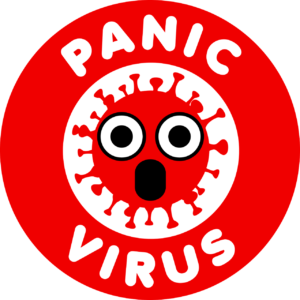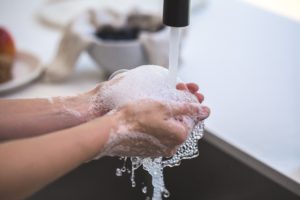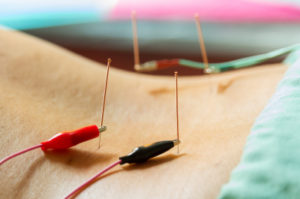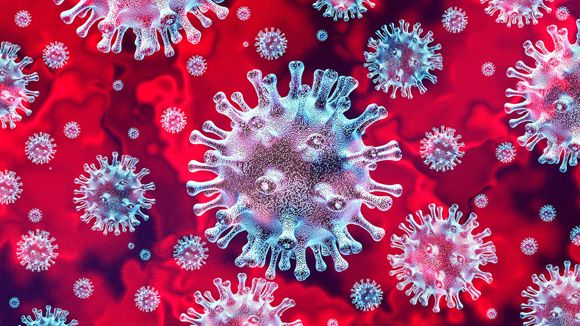 Should I Panic?
Should I Panic?
No. There is currently no need to panic. It is wise to take precautions to protect yourself and your family, however.
What is a Pandemic? It sounds scary.
A pandemic is the spread of a disease across a country, continent or the world. This doesn’t mean that the disease is necessarily deadly, but only that it has spread throughout a large portion of the world. Pandemic viruses are typically new, which means that we haven’t developed methods to combat them, and do not fully understand how they spread, multiply, and mutate. As such, some groups of people are at higher risk and should take greater precaution, but it is also important that we all work together for the benefit of everyone.
Are you sure I shouldn’t panic; the word panic is in pandemic?
I’m sure. First, we kn ow what it is, and we are reasonably certain that its mutation rate may not be very high. We know how to detect it. 81% of cases either cause no symptoms. Most people who are infected are cured. There are 13 times more cured cases than deaths and that proportion is increasing. Only 3% of cases occur in people under 20 and the mortality rate is only 0.2% for people under 40. The scientific communities worldwide are on top of learning more, creating a vaccine and antiviral drugs. The CDC Center for Disease Control and Prevention) and the WHO (World Health Organization) have both stated that there is currently no need to panic, but that precautions are advisable.
ow what it is, and we are reasonably certain that its mutation rate may not be very high. We know how to detect it. 81% of cases either cause no symptoms. Most people who are infected are cured. There are 13 times more cured cases than deaths and that proportion is increasing. Only 3% of cases occur in people under 20 and the mortality rate is only 0.2% for people under 40. The scientific communities worldwide are on top of learning more, creating a vaccine and antiviral drugs. The CDC Center for Disease Control and Prevention) and the WHO (World Health Organization) have both stated that there is currently no need to panic, but that precautions are advisable.
What precautions should I take?
While 81% of cases are mild, that still leaves 14% where the virus can cause severe pneumonia and can become critical or even fatal in 5%. This is where it is important to consider our community as a whole. Just because you are in a low risk group doesn’t mean that you shouldn’t do things that may help those in the high-risk group.
Wash your hands for at least 20 seconds using warm water and soap. And wash your hands often.
Use hand sanitizer with a solution of ethanol (62-71% alcohol) when washing your hands is not practical.
If you feel sick, stay home! And if you can work from home do so. Additionally, if you are sick do not go out into public. Have someone pick up your groceries or have them delivered. Cancel social events. STAY HOME! If you do go out, retain a socially safe distance from other people (in case you’re wondering that’s 6 feet away).
Clean surfaces that you touch frequently often with a diluted bleach solution, alcohol solution with at least 70% alcohol, or one of the EPA approved household cleaning disinfectants. These surfaces include your phone, keyboard, doorknobs, light switches, countertops, handles, toilets, tables, desks, remote controls, faucets, sinks. And if you are traveling you can find the germiest places here.
If you are having your neighbor/friend/family member get things for you or are using a service to have things delivered to you, taking some additional precautions to protect those helping you out is a good way to go.
Unless you have the flu you don’t need to wear a mask, so there is no need to stockpile them. Leave the masks so that those who do need them can access them. Wearing a mask when you don’t need one actually increases your chances of getting the corona virus or the flu because the mask is often not properly fitted so you increase touching to your face. If you are sick, or taking care of someone how is sick it may be advisable to wear a mask, but you need to know how to do it properly.
Avoid touching your face. Cover your nose and mouth properly when coughing or sneezing. Here’s a song that can help kids remember.
So, I don’t need more toilet paper?
No. First, it’s not that type of virus. Second, if you are stock piling goods – STOP STOCKPILING STUFF. It’s creating a problem. Seriously stop. You should have a 30-day supply of any medications you take and a pantry stocked with basic supplies such as pastas, soups, rice, tuna, and pasta sauces to supply you with enough meals for 2-3 weeks. Remember that a box of pasta and a jar of pasta sauce is several meals, so don’t stock pile that stuff either! And don’t forget that leafy green vegetables are packed with vitamins and minerals that help your immune system so be sure to have some of those on hand too (frozen varieties are great options).
Who is at greatest risk?
Older adults, especially those over 60, men, people with compromised immune systems, and people with high blood pressure, heart disease, and diabetes are at the highest risk.
How do I know if I have the Coronavirus?
While there is a test for the COVID19, it currently requires a physician to order it from the CDC. The University of Washington recently became approved as a testing site and is working on innovative ways to provide tests while still keeping the virus contained. If you have traveled to one of the infected areas (China, Italy, Japan or Iran) or have been in contact with someone known to have the virus and have symptoms, please contact your primary care provider or urgent care for next steps.
What can acupuncture do to help?
Acupuncture has many benefits which can help. First, it is great at helping you manage your stress. Prolonged periods of stress have been shown to weaken your immune system thereby increasing your risk of getting sick. Second, it can aid and support your immune system which can help you not only avoid COVID19, but the flu as well. And third, it can help you manage the anxiety and fear you are feeling.
benefits which can help. First, it is great at helping you manage your stress. Prolonged periods of stress have been shown to weaken your immune system thereby increasing your risk of getting sick. Second, it can aid and support your immune system which can help you not only avoid COVID19, but the flu as well. And third, it can help you manage the anxiety and fear you are feeling.
What should I do if I think I may have the Coronavirus?
First, it is important to make sure you have COVID19 and not the flu or allergies. Here is a quick reference of the symptoms of each to help you. If you still think you may have COVID19, check out the FAQs on the DOH website. You can also call your primary care provider or urgent care to determine if you need to come in to be tested.
If I want more reliable information where should I go?
Besides the many links included in this document you can also go to:
